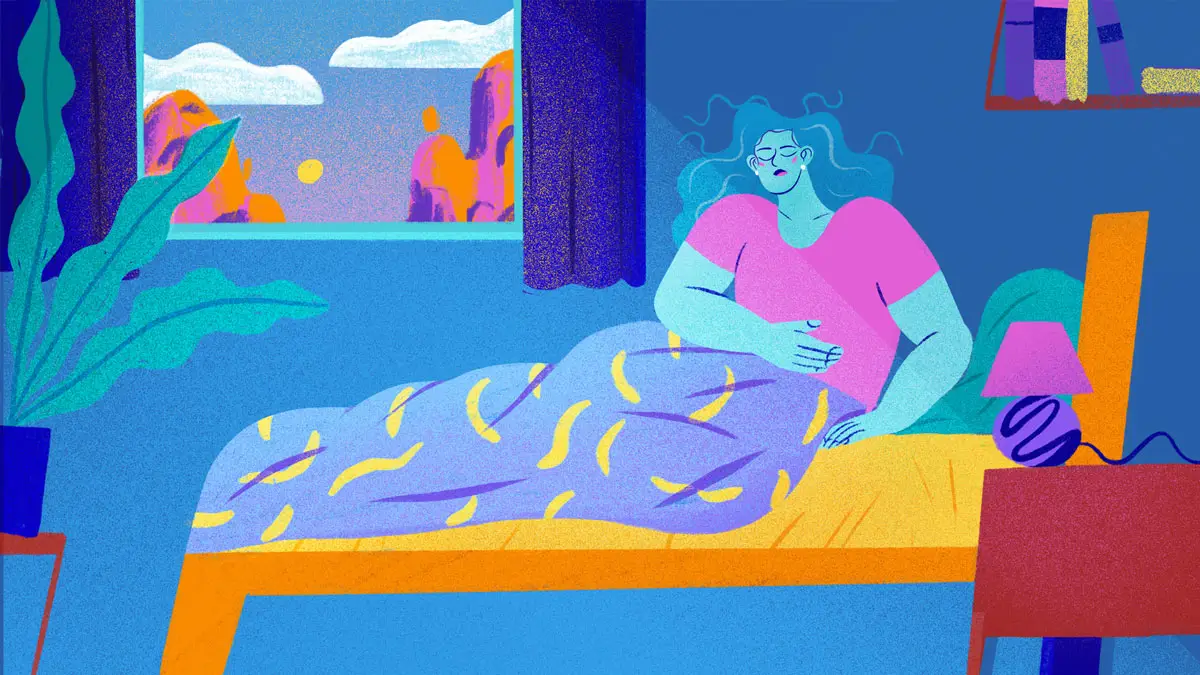Diarrhea related to your period doesn’t have to be accepted as just a normal part of the monthly cycle. There are things you can do to alleviate the discomfort or reduce the symptoms so you can feel confident and in control.
What Causes Diarrhea Before or During Your Period?
It’s perfectly normal to experience diarrhea with your period. Abdominal pain and diarrhea are two of the most common period-related gastrointestinal symptoms2.
Although the mechanism is not fully understood, changes in hormones are believed to be responsible for gastrointestinal symptoms related to your menstrual cycle. A group of compounds called prostaglandins are thought to be responsible for these monthly inconveniences2. This is because prostaglandins stimulate contractile activity in the bowels, which can lead to diarrhea2.
Prostaglandins, Endometriosis, and Diarrhea
Prostaglandins are chemicals made by your uterus during your period. The muscles in your uterus can relax and get tighter because of prostaglandins and this can cause cramps3. Excess prostaglandins can cause a range of gastrointestinal symptoms, including diarrhea. They can increase electrolyte secretion and muscle contractions, which can lead to looser stools2.
Women with endometriosis may also suffer from diarrhea during menstruation4. This may be due to prostaglandins, or it may occur if endometrial tissue is growing around the intestines. Up to one-third of women with endometriosis have endometrial tissue on their bowel5. If you've been diagnosed with endometriosis and are experiencing trouble managing diarrhea symptoms during menstruation, talk with your healthcare provider about your options.
Other general causes of diarrhea can include Stress, Food Intolerances, Medications, Food & Drink.
How to Stop, Manage, and Prevent Period Diarrhea
You can treat period-related diarrhea, not associated with endometriosis, the same way you would any other bout of diarrhea1,6. Even without any treatment, menstrual diarrhea should clear up on its own once your hormone levels return to post-menstruation levels. Make sure you’re drinking plenty of fluids to counteract the fluid loss from diarrhea.
If your diarrhea causes you discomfort or inconvenience—like having to put your plans on hold—there are ways you can try to relieve the symptoms.
Treating Diarrhea Symptoms
If you experience menstrual diarrhea, follow these steps to get back to normal more quickly:
Hydrate with water, low-sugar fruit juice without pulp, or salty broth
Consider taking an over-the-counter anti-diarrheal product such as IMODIUM®. IMODIUM® products contain an active ingredient called loperamide, which works in harmony with your gut to help restore its natural rhythm.
Occasional diarrhea just before or during your period is completely normal. If it’s starting to get in the way of your everyday activities, there could be something else going on. Make an appointment with your healthcare provider if you have:
Diarrhea or other GI symptoms that worsen or last beyond two days
Pain or cramping in the stomach or pelvis that’s hard to control with OTC medicines
Stools with visible blood or mucus
Managing Menstrual Symptoms
Cramps and bloating are also common menstrual symptoms. Here are ways that you can prevent these issues7:
Reduce stress and anxiety — Consider adding yoga or meditation to reduce extra stress you may feel during your period
Get regular exercise — This can help some women with menstrual cramps
Apply a heating pad to your abdomen or back — the heat can help relieve muscle cramps




